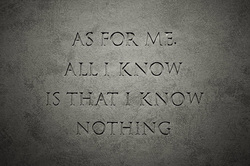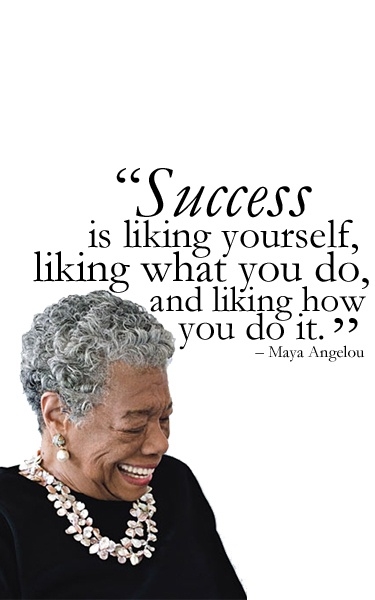 “Why would you, an African American writer, bother to write a story from the point of view of a white male when the world needs more stories written about black people by black people?” was the question asked by a well-meaning white professor during a creative writing workshop I took many moons ago. I got this lecture after she returned my short story to me – not a single comment except “See me after class.” I stood looking at her for a moment. The room was empty. Just the two of us. She was a young woman herself. New to teaching. New to publishing – she had published a few poems and short stories, but that was about it. She was full of righteous indignation. A northern whirlwind, intent on “saving” her one African American student who had the unmitigated gall of writing about something other than “the black experience.” My response to her came from my own place of righteous indignation. “I bothered to write about a white male character because I can.” Then, I symbolically threw down the microphone and walked off. Okay, I was twenty-something. Tact, and perhaps, patience were not really in my DNA yet, although thinking about the “me” I’ve become, my response would probably be the same, but this time, I would offer an explanation for my answer, and it would go something like this: I am a writer. I happen to be African American. I happen to be female. I happen to be southern. I happen to be a mother and a wife. Hell, I happen to be a pescetarian who desperately craves barbecue ribs at times. Does that mean I should only focus on stories that involve those types of characters? I think not. Now, that doesn’t mean those types of characters don’t interest me, it just means I am of the mindset that a writer should never place creative limitations on herself. The chances are very good I will write mainly stories that involve African American characters. The chances are equally as good that most of my stories will take place somewhere in the rural south. However, I would not swear on it. Tomorrow, I might decide to write about a young Vietnamese girl who writes love notes for American G.I.s to send back to their girlfriends who are stateside. As a writer, that is my right. I go where my imagination takes me, and sometimes, where I end up, even shocks me. I would not want to live in a world that didn’t have Eudora Welty’s short story “A Worn Path.” Yes, Welty is white, but the way she depicted the love the grandmother in the story felt for the young grandson who had trouble swallowing transcends race. It didn’t matter that Eudora wasn’t an old black woman writing from her own experiences. It just didn’t matter. I can’t imagine studying southern fiction, and not being able to read Faulkner’s depiction of Dilsey in The Sound and the Fury. I can’t imagine believing that character any more than I did if the writer had been black. And how would we talk about the antebellum south and the slavery resistance movement in the north if we didn’t have Harriet Beecher Stowe’s Uncle Tom in Uncle Tom’s Cabin? Now, the problem occurs when writers get lazy. We could probably talk all day about how Stowe’s depiction of Uncle Tom was fraught with stereotypes and misrepresentations. I could go on and on for days about contemporary writers who have "assumed" they understood another culture and wrote with wild abandonment about that culture in ways that were equal parts gross and unconscionable. So, a conscientious writer cannot assume. If a writer, regardless of ethnicity, gender, socio-background, etc., wants to writer about Others, then just like they wouldn’t dare to write about 17th Century Japanese culture without doing a ton of research, the same is true when writing about a different ethnic or gender group. When I first started contemplating, Jimmy Earl, the 16 year old white male narrator in my upcoming novel, I immediately called my friend Rob Gray (It has been years now since that conversation, but it really shaped how I think about this subject). Rob is male and he has lived the majority of his life in the south. But more than that, he and I have the type of friendship that no question is off limits. I knew I could ask ridiculous questions and get a thoughtful response. And I did. I asked him everything imaginable. I didn’t assume I understood how a white male might think in certain situations. I asked questions and I continue to ask questions. When writers do this, they are free to explore EVERY situation and EVERY circumstance. Writers can write about anything and everyone. But we have to treat our characters with the same respect we do those details we automatically look up like what day did the Fourth of July fall on in 1936 (Saturday, by the way). As I mentioned above, we would not assume that we understand the behavior and attitude of someone born in the 17th century in Japan, so we have to operate with the same mindset when we write about other ethnic groups who we may think we know, but in fact, we have no clue. I know a lot about what it means to be an African American woman, but when I wrote a story called “Shaken” that is told from the point of view of an 18 year old African American male, I went to my son and asked his advice. I didn’t assume that I knew anything, and by assuming I knew nothing, I was open to everything my son had to say about my story (and he had quite a bit to say). “Mom, we (meaning his generation) don’t say things like that anymore. That is so 1990.” “No, a guy would never say/do/think that.” I love it when my white students come to me and ask, “does this sound like something a black person would say or do.” Now, I assure them that I can’t nor do I want to speak for all black people (that is another discussion for another day), but I am gratified that they at least recognize their limitations. I am pleased that they “get” the fact that we aren’t all the same. I celebrate their understanding that unless you’ve walked in someone’s shoes you really are clueless to their experience even if you were walking right beside them the whole way. So, to all writers I say, write what interests you. Just make sure you do your research. Assume you know nothing, which then allows you to be a wide open vessel, open to receiving all sorts of information about the human condition of others.  The only thing separating them from me is I got lucky. The only thing separating them from me is I got lucky. The only thing separating them from me is I got lucky. The only thing separating them from me is… Today, I walked into a prison for the first time in my life. I didn’t know what to expect. I didn’t know if the women would be hostile. Violent. Mistrusting. Accusatory. Apathetic. I didn’t know. I was excited to be there with them, but I still prepared myself for the worse. I prepared myself to face a room full of angry women who resented my freedom to come and go as I pleased. I imagined a classroom of women shackled and chained by the choices they made that led them to a life of incarceration. I imagined a cross between Orange is the New Black and Shawshank Redemption. I tried to prepare myself for the fact that these women would be nothing like me. Nothing like me. Nothing like me. The only thing separating them from me is I got lucky. The only thing separating them from me is I got lucky. The only thing separating them from me is I got lucky. The only thing separating them from me is… I looked each woman in the face. Smiling faces. Hopeful faces. Faces similar to the fresh faces I see each time I teach at the University. I heard names like Denise, Angel and Amy. Names that didn’t inspire fear. Names that implied they could have been doctors. Lawyers. Teachers. Names that didn’t convey poor choices. Names that any of us could bear. The only thing separating them from me is I got lucky. The only thing separating them from me is I got lucky. The only thing separating them from me is I got lucky. The only thing separating them from me is… I saw women with tattoos that mirrored my own. Nothing scary. Just names of babies. Names of boys they thought would love them to infinity and beyond. Images of loved ones gone but not forgotten. Birds. Hearts. Bible Verses. I heard women tell stories similar to my own – stories of abuse, self-loathing, and anger. I saw regret in the eyes of women who knew there would be no do overs. I saw women who, under normal circumstances, would be my colleagues. My next door neighbors. My best friends. My sisters. My aunts. My mothers. I heard women with life sentences speak about dreams for the future. I looked in mirrors and saw me looking back. The only thing separating them from me is I got lucky. The only thing separating them from me is I got lucky. The only thing separating them from me is I got lucky. The only thing separating them from me is… I saw women whose psyche was sometimes so fragile they hid from the night like it was an abusive lover. I, too, fear the night sometimes. I, too, wonder will that elusive sun really come out tomorrow. I saw graceful movements. I heard lyrical voices. I saw beautiful flowers I wanted to rescue and take home with me so they could stretch towards the light and grow the way they were meant to grow. Only grace and good fortune allowed me to say my good-byes and walk outside into the light, but, before leaving, I promised. I’ll be back. I won’t leave and unremember you. I’ll be back. I promise you, I’ll be back. The only thing separating them from me is I got lucky. The only thing separating them from me is I got lucky. The only thing separating them from me is I got lucky. The only thing separating them from me is… |
Archives
March 2021
Categories
All
Blog Roll
|

 RSS Feed
RSS Feed







